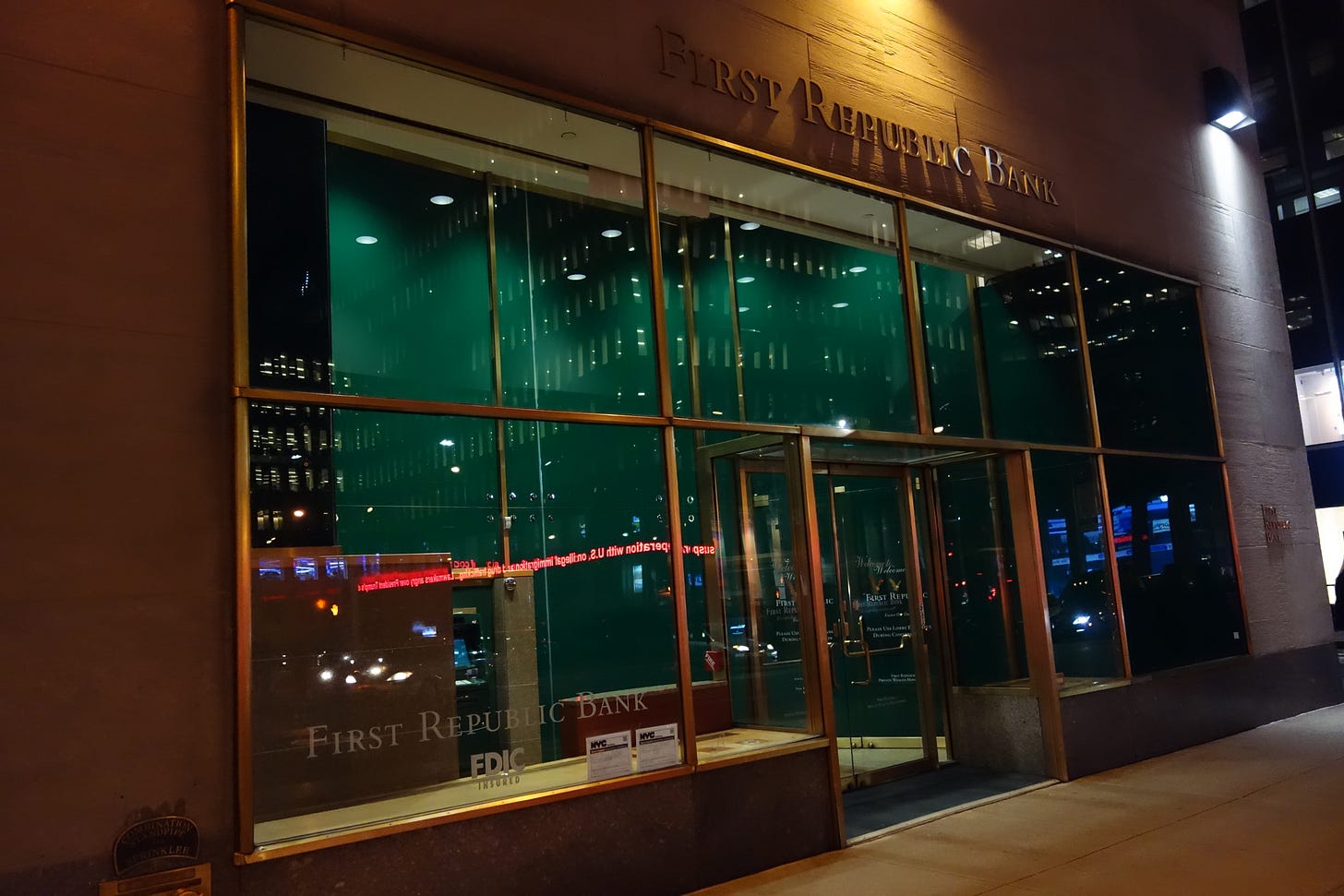First Republic Bank: ‘The Banking System Is Not Anywhere Near Collapse the Way It Was Back in 2008’
Rules have to be made more certain about when more than $250k will be insured, congressman says
If and when the federal government will insure deposits higher than $250,000 need to be clarified in the wake of the collapse of Silicon Valley Bank (SVB) and the potential failure of another US bank, First Republic Bank.
That's the view of a Democratic member of the House Financial Services Committee.
The federal government stepped in to cover all deposits when SVB failed in March, even those above the mandated $250,000 insured limits.
The question becomes: Does the government do this again, now that the Federal Deposit Insurance Corporation (FDIC) is on the verge of stepping in as another regional bank appears to be on the verge of collapse.
U.S. regulators are trying to clinch a sale of First Republic Bank over the weekend, with roughly half a dozen banks bidding.
How much protection should the FDIC offer First Republic's customers?
“Yeah, so what the law actually says is that all depositors all ways are guaranteed to be safe up to $250,000 and then under special circumstances the deposits can be guaranteed to higher levels and there are two aspects of this,” said Rep Bill Foster (D-Ill), a member of the House financial services panel. “There are kinds of deposits used for transactions and these are like meeting payroll and stuff like this and I think there’s a bipartisan agreement that those deposits should always be safe when the bank gets into trouble.”
Higher deposits in service of speculation is a different category, Foster said.
“There’s a separate issue of people who went to a bank because they were getting a high interest rate and the high interest rate was being offered in part because the banks were not paying FDIC insurance premiums and so, that’s partly what happened in Silicon Valley bank,” he said. “They were paying roughly .6 of a percent higher than all of these competitors and a bunch of people went in and put deposits in excess of the $250,000 guarantee and this cry went up, ‘Well, they have to be bailed out.’
“So I’m not a fan of this kind of bailout and I think we have to be more certain about the rules under this going forward and important to emphasize that the banking system is not anywhere near collapse the way it was back in 2008,” Foster added. “In 2008, there were no white knights available to rescue them. Now, there are a number of banks fully capable of rescuing these things.”
The banks failing right now represent a tiny fraction of the US economy, Foster said.
“The banks under stress or failed right now —Silicon Valley, First Republic — they’re less than 1 percent of U.S. [gross domestic product]. They could be completely annihilated and our economy would not crash,” he said. “And one of the reasons for that: The rest of the banking system has been forced to hold a lot of capital. So that there are white knights.”
Please support our work…
Also, please subscribe…





